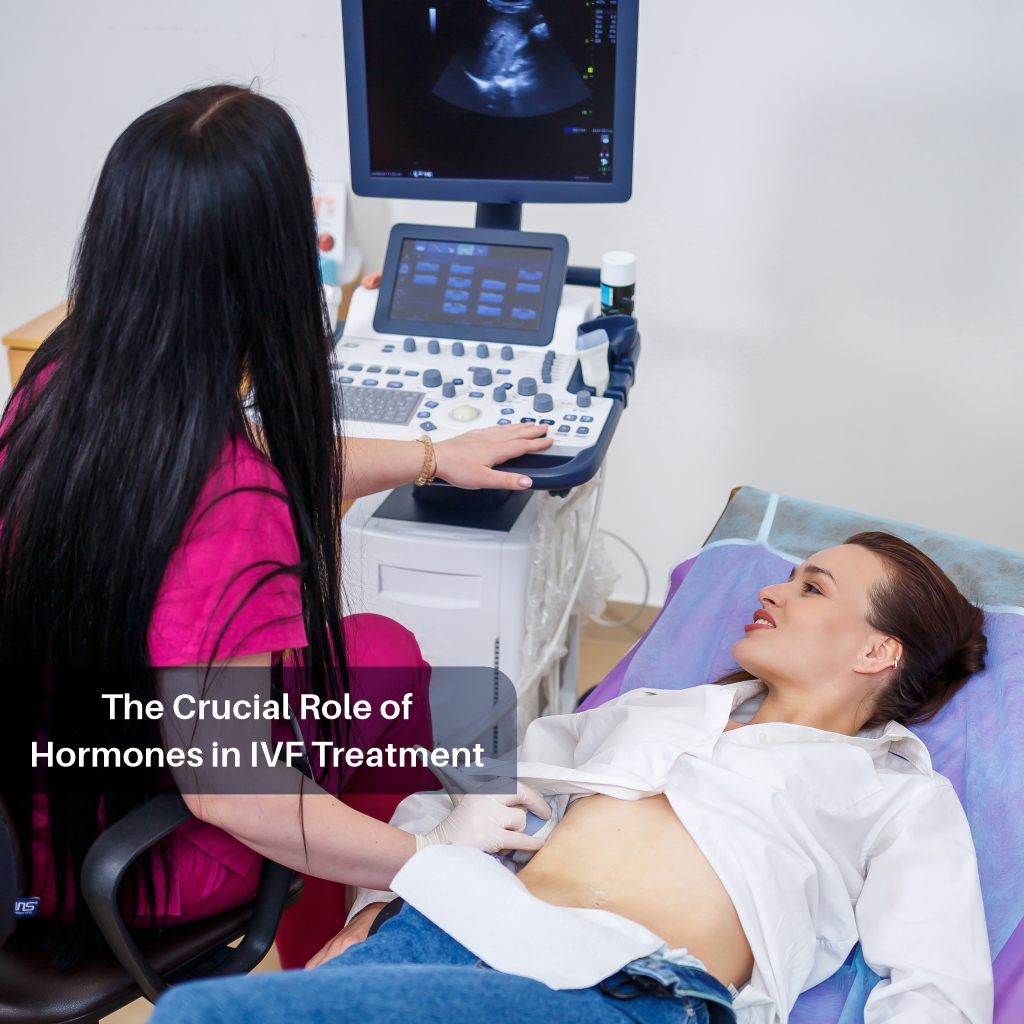The Crucial Role of Hormones in IVF Treatment
Embracing a New Vision – Pregnancy’s Effects on Eyesight and How to Navigate Them
October 14, 2023The Vital Importance of Getting Vaccinated Before Pregnancy
December 8, 2023In vitro fertilization (IVF) is a groundbreaking medical procedure that has provided hope and fulfilled dreams for countless individuals and couples struggling with infertility.

In vitro fertilization (IVF) is a groundbreaking medical procedure that has provided hope and fulfilled dreams for countless individuals and couples struggling with infertility. One of the most critical aspects of IVF treatment is the precise control and manipulation of hormones. Hormones play a pivotal role in the success of IVF, from stimulating the ovaries to monitoring the growth of follicles, and regulating the final steps of the procedure. Let’s delve into the essential role of hormones in IVF treatment and understand how they contribute to the creation of life.
Ovarian Stimulation
The first and crucial step in an IVF cycle is ovarian stimulation. Hormones are administered to the patient to promote the development of multiple mature follicles within the ovaries. This is typically achieved using two hormones: Follicle-Stimulating Hormone (FSH) and Luteinizing Hormone (LH), which are administered in the form of injections.
FSH stimulates the growth of follicles within the ovaries, each containing an immature egg. LH helps trigger the final maturation of these eggs, preparing them for retrieval. By precisely regulating the levels of these hormones, doctors can control the number of eggs retrieved and increase the chances of success during IVF.
Monitoring Follicle Growth
Throughout the ovarian stimulation phase, patients undergo regular monitoring through blood tests and ultrasound to measure hormone levels and follicle growth. Hormone levels such as estradiol, a form of estrogen, are monitored closely to ensure that the ovarian response is adequate. Ultrasound scans help assess the number and size of follicles. This monitoring helps doctors adjust hormone dosages as needed to optimize the chances of a successful IVF cycle.
Triggering Ovulation
Once the follicles have reached an appropriate size and maturity, a hormone called human Chorionic Gonadotropin (hCG) is administered to trigger the final stage of follicle development and ovulation. This hormone mimics the natural LH surge and ensures that the mature eggs are released from the ovaries, making them ready for retrieval.
Egg Retrieval
The next step involves the retrieval of mature eggs. This procedure is typically scheduled approximately 36 hours after the hCG trigger injection. During the egg retrieval, a needle is inserted through the vaginal wall to access the ovaries, and the mature follicles are aspirated to collect the eggs.
Hormone Support During Embryo Development
Following egg retrieval, the focus shifts to the laboratory, where fertilization and embryo development take place. Hormonal support continues during this phase, with the administration of progesterone and, in some cases, estrogen, to prepare the uterine lining for embryo transfer. These hormones help create a suitable environment for the embryos to implant successfully in the uterus.
Embryo Transfer
The final stage of the IVF process is the embryo transfer, where one or more healthy embryos are placed into the patient’s uterus. Hormonal supplementation continues, often involving progesterone injections or suppositories to support the uterine lining and increase the chances of successful implantation. This hormone support may continue through the early stages of pregnancy if the IVF cycle is successful.
Pregnancy Testing
Around 10 to 14 days after embryo transfer, a blood test is conducted to measure the levels of a hormone called beta-human chorionic gonadotropin (beta-hCG). This hormone is produced by the developing placenta and is used to confirm pregnancy. Rising levels of beta-hCG indicate a successful implantation.
In vitro fertilization is a complex and highly regulated medical procedure that relies on precise control of hormones at various stages. These hormones are instrumental in stimulating the ovaries, monitoring follicle development, triggering ovulation, supporting embryo implantation, and confirming pregnancy. Thanks to advancements in hormone manipulation and the dedication of medical professionals, IVF has provided hope and joy to countless individuals and couples seeking to expand their families. Understanding the pivotal role of hormones in IVF treatment underscores the significance of medical science in making parenthood a reality for many. For further information, please call on 02228990202/ 09136351313
